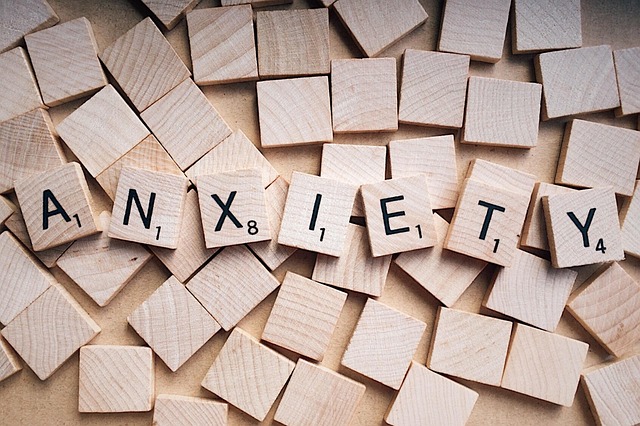In today's diverse society, offering Superior Gender-Affirming Care Therapy (GACT) in mental wellness groups is essential for fostering safety, trust, and open dialogue. This approach challenges traditional norms, promotes resilience building, and stress management while encouraging participants to connect with their authentic selves. Effective facilitation involves active listening, inclusive language, risk management planning, cultural competency, and creative activities. The goal is to create a supportive environment where individuals can explore mental wellness journeys without stigma, fostering self-care routines, inner strength, and personal growth for all participants.
Mental wellness group facilitation plays a pivotal role in enhancing individuals’ well-being. This article explores powerful techniques for facilitators, focusing on creating safe spaces that encourage open dialogue and emotional expression. We delve into the significance of superior gender-affirming care therapy, offering strategies to build trust and foster inclusive environments. From effective communication methods to creative activities, these tools revolutionize group dynamics, ensuring every member feels valued and supported in their journey towards mental health and healing.
- Understanding the Importance of Gender-Affirming Care in Mental Health Groups
- Creating a Safe and Inclusive Environment: Techniques for Group Facilitators
- Effective Communication Strategies for Building Trust and Fostering Open Dialogue
- Incorporating Creative Activities to Enhance Emotional Expression and Connection
Understanding the Importance of Gender-Affirming Care in Mental Health Groups

In today’s diverse society, it’s crucial to recognize that mental wellness groups must offer superior Gender-Affirming Care Therapy (GACT) for all participants, regardless of their identity. Mental health awareness has evolved to embrace a broader understanding of individual experiences and needs, particularly when it comes to gender expression and identity. GACT ensures that every person feels seen, heard, and respected within the therapeutic environment, fostering an atmosphere of safety and trust. This approach is game-changing in promoting resilience building and stress management, as it challenges traditional norms and creates a more inclusive space for open dialogue.
Effective group facilitation techniques should actively incorporate strategies to enhance mental health workshops organization by addressing gender-related concerns. By doing so, facilitators can help participants develop coping mechanisms that are aligned with their authentic selves, thereby improving overall well-being. This not only benefits individual members but also contributes to a more comprehensive and effective mental wellness support system within the community.
Creating a Safe and Inclusive Environment: Techniques for Group Facilitators

Creating a safe and inclusive environment is paramount for effective mental wellness group facilitation. Group facilitators should employ techniques that foster a sense of belonging and respect among participants, regardless of their identities or backgrounds. This involves cultivating an atmosphere where everyone feels seen, heard, and valued, promoting open dialogue and encouraging active participation. Techniques such as active listening, reflective summarizing, and using inclusive language can significantly enhance this process. By prioritizing these methods, facilitators create a supportive space conducive to vulnerability, trust, and meaningful connection—essential elements for superior gender-affirming care therapy.
Moreover, integrating risk management planning into group sessions is crucial for addressing potential triggers or sensitive topics. Facilitators should be adept at navigating difficult conversations, ensuring the well-being of all members while facilitating productive discussions. This involves being culturally competent, understanding the impact of systemic biases, and providing appropriate resources to support participants’ mental health needs. Effective risk management planning, coupled with a commitment to healthcare provider cultural competency training, enables facilitators to create a safe haven where individuals can find relief from anxiety and explore their mental wellness journeys without fear or stigma.
Effective Communication Strategies for Building Trust and Fostering Open Dialogue

In facilitating mental wellness groups, establishing a safe and supportive environment is paramount. Effective communication strategies play a crucial role in building trust among group members, encouraging open dialogue, and fostering a sense of belonging. Gender-affirming care therapy, with its focus on superior inclusivity, can significantly enhance these interactions. By creating an atmosphere where everyone feels seen and heard, facilitators enable participants to explore their mental health challenges and solutions freely.
Utilizing techniques like active listening, where facilitators reflect and paraphrase individual experiences, promotes self-care routine development for better mental health. Additionally, encouraging open discussions about mental health awareness helps normalise conversations around sensitive topics. This not only strengthens inner strength development but also fosters a supportive community where members can offer and receive encouragement, leading to profound personal growth.
Incorporating Creative Activities to Enhance Emotional Expression and Connection

Incorporating creative activities into mental wellness group facilitation offers a unique and powerful avenue for enhancing emotional expression and fostering connection among participants. These activities provide an alternative means of communication, allowing individuals to explore and articulate their feelings in ways that may be challenging through traditional conversation alone. Through art, music, movement, or storytelling, clients can tap into their emotions, process complex experiences, and develop a deeper understanding of themselves and others.
By integrating creative expressions, facilitators create a safe and supportive environment, particularly within the context of Superior Gender-Affirming Care Therapy. This approach encourages participants to engage in compassion cultivation practices, such as mindful listening and empathetic response, which further strengthen the therapeutic bond. The Mental Wellness Podcast Series Production can also benefit from these techniques, providing rich content that resonates with audiences and enhances overall mental wellness.
Mental wellness group facilitation is a powerful tool, especially when employing superior gender-affirming care therapy techniques. By creating safe spaces, facilitating open communication, and incorporating creative activities, facilitators can help individuals express themselves authentically and form deep connections. These inclusive practices not only enhance emotional well-being but also foster a sense of belonging, ensuring that every participant feels valued and understood in the therapeutic journey.










